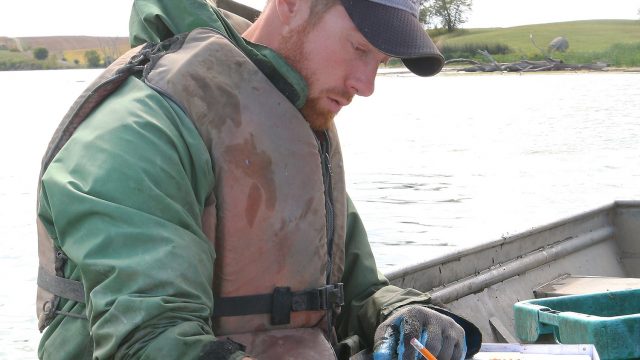Doug Leier: You Don't Need Hunting Or Fishing Skills To Work For The Game And Fish Department

January and February typically generate a few phone calls and emails from parents, teachers, school counselors and high school and college students about careers in the outdoors.
I had a conversation with a counselor recently that might help answer some of those questions.
The counselor has a student who loves to hunt and fish, and she thought a career in the natural resources field would was worth consideration for the student.
First off I explained enjoying the outdoors is a must, and hunting and fishing are a big part of that. However, being an expert marksman or professional angler isn’t part of the job skills requirements. I explained that the job of a wildlife or fisheries biologist doesn’t involve actual hunting or fishing, but it does provide field time working with ducks, deer, fish or many other species.
After the obvious realization that working for the North Dakota Game and Fish Department does not depend on hunting and fishing skills, students then want to know “How do I get a job in the in the natural resources field?”
[mks_pullquote align=”right” width=”300″ size=”24″ bg_color=”#ffffff” txt_color=”#000000″]How to become a game warden seems to be at the top of the list, followed by both fisheries and wildlife biology in equal numbers. Few people ask about the many other possibilities, but there are literally dozens of other paths to take.[/mks_pullquote]
Usually, though, it’s more specific than the natural resources field. How to become a game warden seems to be at the top of the list, followed by both fisheries and wildlife biology in equal numbers. Few people ask about the many other possibilities, but there are literally dozens of other paths to take.
First and foremost, a four-year college degree is a basic requirement. If the career aspiration is more research or species-specific, such as furbearer biology, you’ll need a graduate degree. Even then, if you’re willing, able and meet the minimum qualifications, there is usually a high level of interest in limited opportunities (Game and Fish has one furbearer biologist), and that generates stiff competition from applicants from across the nation.
Beyond the degree, and especially if you are more adept at hands-on technical work such as a fisheries or wildlife biology, field experience sandwiched into college will provide multiple benefits. First, you’ll find out if the job is something you’d potentially like to do the rest of your working life. Better to find out early during your college years, rather than after you’ve invested money and time into earning a degree.
I spent college summers working for the U.S. Fish and Wildlife Service across the state, learning how to band ducks, trap predators, fix fence, etc. But I also took a detour to junior college at Bottineau, and learned other practical skills, not just in the classroom, but in the field as well.
Such experiences make for another box to check on an employment application. Beyond the skills learned, you’ll also forge valuable working relationships, which are of course important as your career continues.
In short, expecting to land a full-time permanent job is short of realistic if your career plan just calls for earning a bachelor’s degree in biology without any field experience. Even with a degree and on-the-job experience, candidates realize how competitive the market is and there is no guarantee of landing a job as a game warden, biologist or other closely related profession.
That said, somebody lands those jobs that in some way help all of us enjoy North Dakota outdoors.
And as a final note, one of them is open right now. Game and Fish is looking for a licensed pilot to join the enforcement division and become a game warden. Job details are available at the Game and Fish website.




